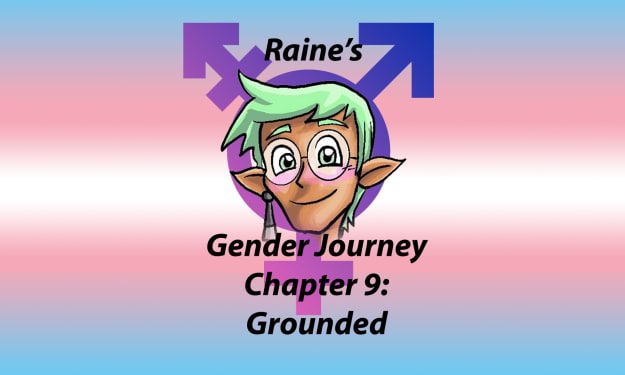Your Voight-Kampff Test Indicates You Saw Nothing at Hiroshima
Trauma, Memories, and Fiction in 'Hiroshima, My Love,' and 'Blade Runner'

During the first minutes of the classic cyber-punk Noir Blade Runner, we’re introduced to the rules of the universe through the interview of a replicant. The Voight-Kampff test is built to reveal “artificiality” in those probed. It’s a combination of questions and a censor that focuses on the subject’s eye, it is supposed to help the Blade Runner to do his job. Though the premise would offer a satisfying nail-bitter in a cyberpunk world already filled with grandiose landscapes, daring visuals, and haunting music, the movie goes further than that and explores what would happen if one of those replicants thought they were human and didn’t know their precious memories were implanted artificially. We’re shown Deckard, the main Blade Runner doing the Voight-Kampff test for hours on the main female character, precisely because Rachel believes in her own human self, her own memory makes it that hard for the test to corner whatever artificiality it is supposed to get to. How do you tell someone who tells the truth from someone who is convinced they are telling the truth? But Blade Runner goes farther. Ultimately, and with an ending that gave us one of the best monologue and sympathetic villain, the movie asks if the distinction between human and non-human, real memories and fake ones, matters in the first place.
When I saw Hiroshima, My Love, two weeks ago, it was when my mind was filled with Blade Runner imagery as I was waiting, with trepidation and excitement for Blade Runner 2049. The 1959 movie I was watching then was filling itself with correspondences, similarities that were coming too fast for me to comprehend, the same way the female character we’ll call Riva, was seeing in the city of Hiroshima, Nevers, the French city of her own childhood, without her looking for correspondences. Her psyche was picking them up anyway.
Hiroshima, My Love is peculiar in how it intersects personal drama and World War trauma in a way that feels unique, and necessary. It also invented a new mean to represent the trigger of flashback, the superimposition of memory on an event happening in the present.
In the first minutes of Hiroshima, My Love, there is a clear and weird disconnect between the love scene happening between two bodies whose identity we know not, and the montage of images related to the memory of the atom bomb destroying Hiroshima. In the first verbal exchange happening during lovemaking, an exchange triggers the female character to remember her visit at the museum, the movies and the news related to the bomb:
Her: I’ve seen everything at Hiroshima. Everything.
Him. You saw nothing at Hiroshima. Nothing.
She then proceeds to describe, in a discourse filled with the poetry of memory and polysemy, how she saw the hospital, the documents of the destruction the filmic reproduction. What is to be understood, is that she saw and felt Hiroshima the way, she herself, experienced an intimate destruction of her self in Nevers, the city of her childhood that quite poetically sound like never. She lost her lover, a German solider, during World War II and got humiliated by the people of her city and her own family after the liberation. She relives the memory of her lover, and the trauma of his death all over again through her meeting the Japanese lover and discovering Hiroshima. “How could I have known this city was built to the shape of love,” Riva says.
This, is a Voight Kampff test, of her own ability to know the trauma of Hiroshima. In the beginning of the movie, she’s not passing the test for the Japanese man, who’s offended at the idea that she could even be able to understand their national and his personal pain.
Blade Runner and Hiroshima, My Love both beg the question of memories and trauma: specifically, how can one supposedly connect to another humanity if one has never lived, or so it seems, the event the other has lived. Both movies show women being shunned, initially, by their male counterpart for lacking in what would be the essence of connection itself, which is a spatial-temporal connection to lived events. While Rachel's emotions are not less real because she was built as an android by a human being, Riva’s emotions are rooted in a different time and space that happened but that bear no actual connection to Hiroshima. Only in her lived symptoms of trauma. Rachel's memories, those who made the person she is, her love for her maker and her consequential love for Deckard, are akin to Riva’s connection to Hiroshima and her love for the Japanese man.
Deckard and the Japanese man go through a quest, of sorts, in the past and the nature of their loved one, and both come to term with Rachel and Riva’s connection to the human experience. The deeply personal trauma of living that not only defines our shared trauma but also defines our connection to the other people who suffered a traumatic experience.
Both quests happen to exist in cities that defy the imagination of the common westerner. Riva lives lost in translation in a city that feels both foreign and intimately familiar buzzing with neon-lights and post-modern artifacts, with a Casablanca bar made to look like a Japanese garden. Deckard lives in the place he has known all his perceived life—as there is still this lingering question of his own nature of replicant—but he is also lost in a world of integrated cosmopolitanism. Both bring the remnant feeling of being stranded in a traumatized environment. After all, Hiroshima is a city forever impacted by the explosion of the atom, while the Los Angeles of Blade Runner is a city soon to be the ruins of the humanity long left by those who destroyed the earth.
The main reason the connection to both movie felt organic to me came from the fact that for the first time, I recognized the way Hiroshima, My Love played unconsciously with the code of the film noir. With the femme fatale, the sense of doom, the pieces of a puzzle to assemble and an individual at odds with the city that alienates and puzzles her. The one reason why it doesn’t come up more often comes from the fact the protagonist is not the nameless Japanese character, but Riva herself. This is the fundamental difference between Riva and Rachel. If both must earn the trust of the viewer, only Riva can fully express her trauma. Rachel, sadly, remains the side-question to Deckard’s own morality and nature, an extension of his own question.
Both movies accomplish quite the marvelous act of allowing their female character to transcend a trauma that seems impossible to share: The trauma of not existing in the eyes of others, not having their experience validated by an already traumatized society.
If Hiroshima, My Love started with the denial of a statement, it ends with the acknowledgment of the equality of both traumatic experience. Your trauma is noteworthy. Your experience of my trauma, even if connected through the rhyming of your own memory, means something to me. It doesn't matter if the simulacrum of your on memory lose the reference of the first traumatic experience, because your feelings are as potent. All I can do is acknowledge this reality, as the Japanese man does at the end, and embrace Riva through a mirror metonymic acknowledgment. We're as broken as our cities. The only solace is the universality of this trauma, and that no one can invalidate another experience.
“Her: Your name is Hiroshima.
Him: Your name is Nevers.”
About the Creator
Public Mistake
They told me you couldn't compare Madame Bovary and Fargo. They were absolutely right. But I did it anyway.
What's up? I have articles about everything, Soft Boys, Alien, Twitter, I might write something about avodado spread, IDK.






Comments
There are no comments for this story
Be the first to respond and start the conversation.